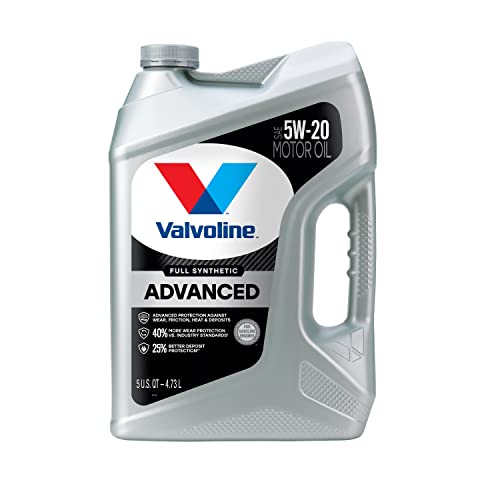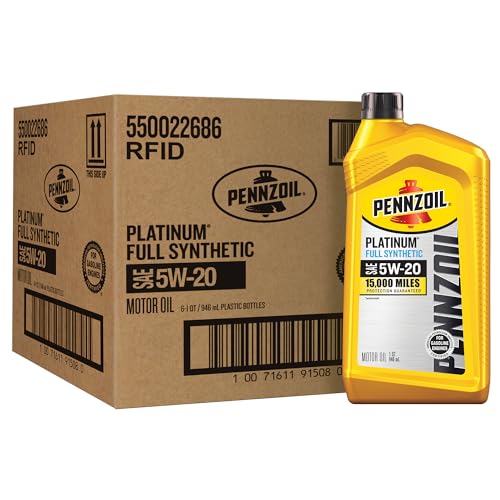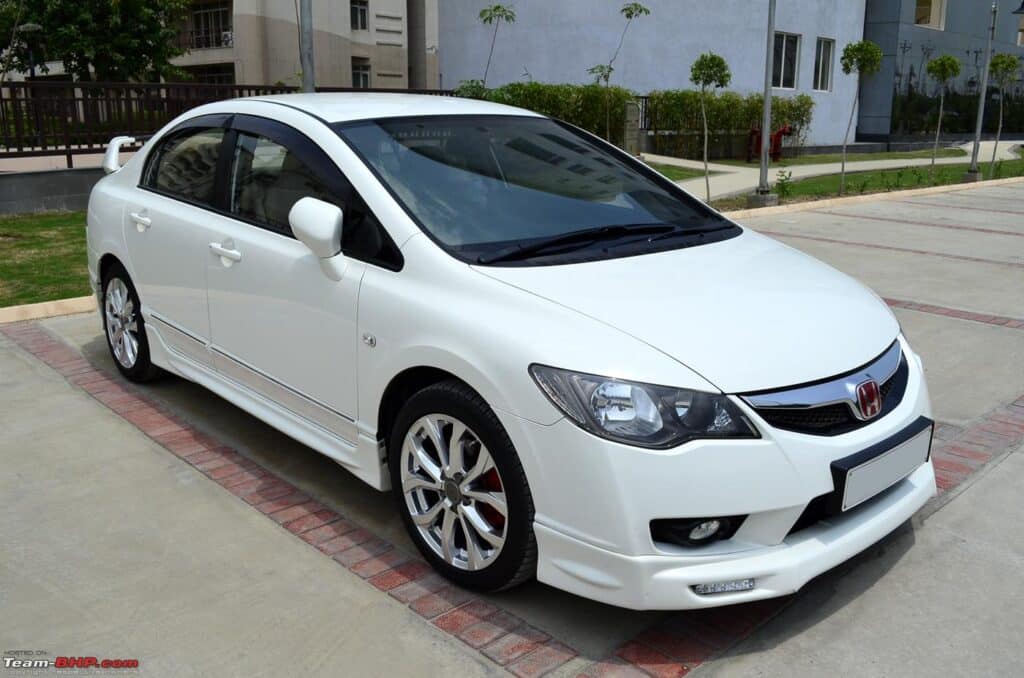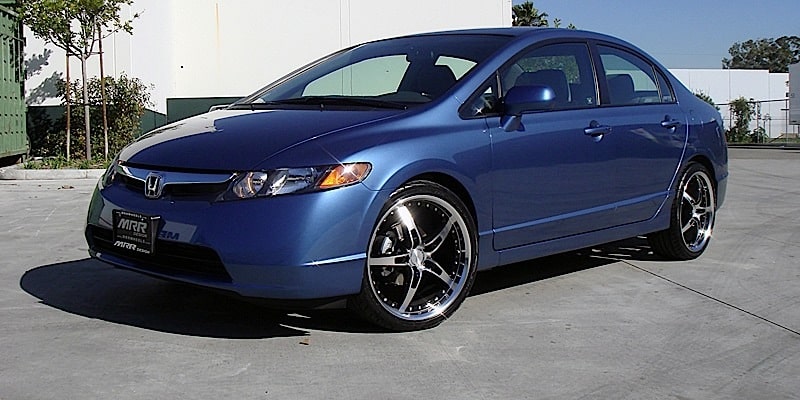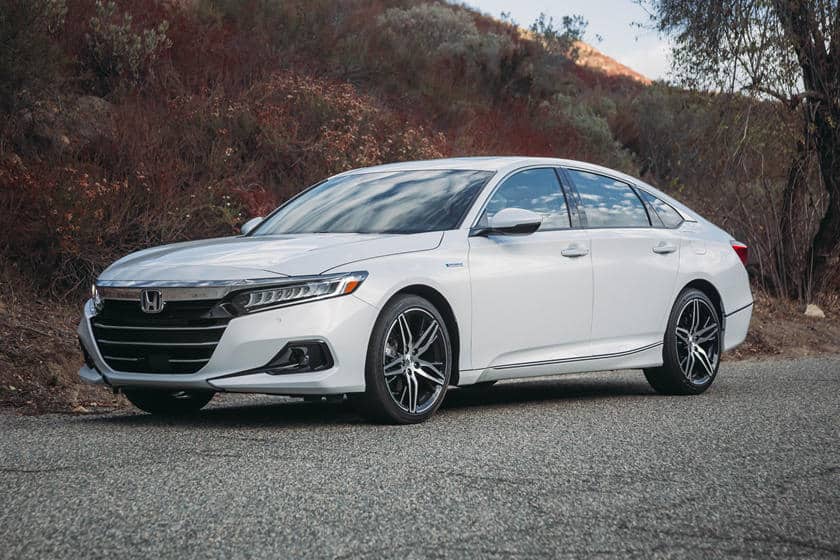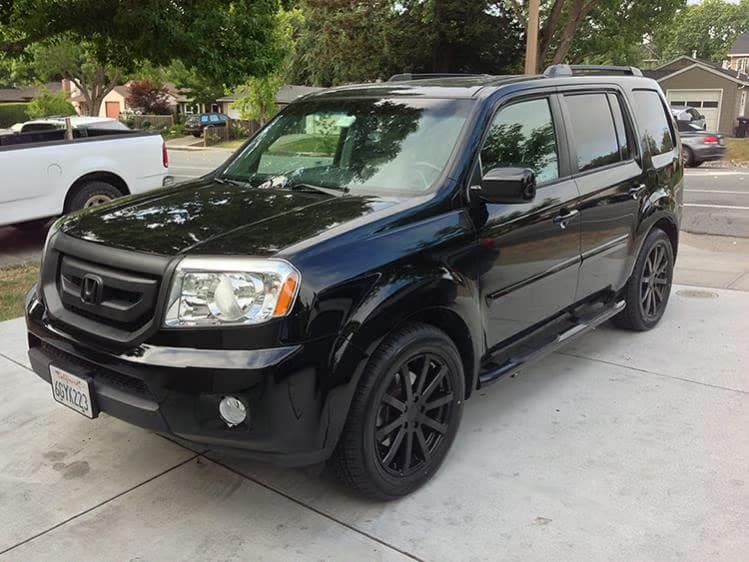The Honda CR-V, with its reputation for reliability and durability, has been a mainstay in the compact SUV market since its debut in 1995. The 2002 Honda CR-V, in particular, is a part of the second generation of CR-Vs that debuted in 2002 and is known for its more powerful engine, improved suspension, and increased interior space compared to its first-generation counterparts.
The 2002 CR-V was designed with a 2.4-liter i-VTEC engine that provided a boost in horsepower and torque over the previous model. This upgrade, coupled with a new chassis design, contributed to improved handling and overall driving experience, cementing the CR-V’s reputation as a comfortable and practical vehicle for both city and highway driving.
Yet, like any vehicle, the performance and longevity of the 2002 Honda CR-V are significantly influenced by the type of oil used in its engine. Engine oil plays a crucial role in a vehicle’s operation, serving as a lubricant for the engine’s moving parts, reducing friction, preventing overheating, and helping to keep the engine clean by reducing the buildup of sludge and varnish.
Choosing the right engine oil for your 2002 Honda CR-V is not a trivial decision. The wrong type of oil can cause poor fuel efficiency, decreased engine performance, and potentially even engine damage over time. On the other hand, the right oil can keep your CR-V running smoothly, maintain its fuel efficiency, and prolong the life of its engine.

What Kind Of Oil Does A 2002 Honda CR-V Take?
According to Honda, the recommended oil for the 2002 CR-V is 5W20. The “5W” refers to the oil’s viscosity at low temperatures (the lower the number, the less viscous the oil is at low temperatures), and the “20” refers to the oil’s viscosity at high temperatures (the higher the number, the less viscous the oil is at high temperatures).
This specification ensures the oil remains fluid enough to lubricate the engine components adequately under a wide range of temperatures, which is crucial for the engine’s performance and longevity.
When it comes to the oil capacity, the 2002 CR-V can hold 4.4 quarts of oil with the filter and 4.2 quarts without the filter.
Oil Viscosity and What it Means
Oil viscosity is a measure of an oil’s resistance to flow or, in simpler terms, its thickness. The viscosity of the oil you choose for your vehicle can significantly impact its performance and longevity.
The first number in the oil specification (for example, the “5” in 5W20) represents the oil’s viscosity at low temperatures (winter or “W”), which is essential for cold starts. The lower the number, the less viscous the oil is at low temperatures. This low viscosity is crucial for cold starts as it allows the oil to flow more easily and reach all the engine components more quickly, reducing wear and tear.
The second number (the “20” in 5W20) represents the oil’s viscosity at high temperatures. The higher this number, the more the oil can resist thinning at higher temperatures. This resistance is essential for maintaining adequate lubrication when the engine is running hot, such as during long drives or in hot weather.
Best Motor Oil Brands for the 2002 Honda CR-V
When it comes to motor oil brands suitable for the 2002 Honda CR-V, there are several that stand out due to their reputation for quality and performance.
- 3X Stronger than the leading full synthetic*
- 10X Better high stress performance**
- 20,000 miles between oil changes***
- Viscosity breakdown as measured in Kurt Orbahn test on 5W-30 grade
Known for their advanced synthetic oils, Castrol offers high-quality motor oils that provide excellent protection against wear and tear. Their Castrol EDGE 5W-20, for instance, is a full synthetic oil that meets the viscosity recommendations for the 2002 CR-V and offers superior engine protection under a wide range of driving conditions.
- Mobil 1 advanced full-synthetic motor oil 5W-20 utilizes Mobil 1’s signature Triple Action Formula to deliver outstanding engine performance, protection, and cleanliness.
- Helps protect critical engine parts for up to 10,000 miles between oil changes,* controlling oxidation to prevent oil breakdown and maintaining excellent viscosity
- Meets ILSAC GF-6 standards to help provide low-speed pre-ignition (LSPI) and timing chain wear protection while keeping your engine clean and helping to improve your fuel economy
- Helps extend engine life by working to prevent damaging deposits and sludge buildup
Mobil 1 is another leading brand that offers a range of high-performance synthetic motor oils. Their Mobil 1 5W-20 Full Synthetic Motor Oil is known for its exceptional wear protection, overall performance, and durability.
- Advanced protection against the four main causes of engine breakdown: wear friction heat and deposits
- 40% better wear protection vs. industry standards as tested in the Sequence IVB engine test
- 25% better deposit protection with superior engine cleaning detergents as tested in the GMOD engine test
- Full synthetic formula offers 24X stronger protection against engine-killing contaminants than the leading full synthetic motor oil
Valvoline’s full synthetic motor oils, such as Valvoline Advanced Full Synthetic 5W-20 Motor Oil, are designed with high-quality base oils and additives that provide excellent engine cleanliness and protection against wear.
- Full synthetic 5W-20 motor oil that is made with natural gas and designed to maximize engine protection
- Backed by a 15,000-mile protection guarantee* to protect your pursuit of every mile
- Provides better fuel economy (based on the latest industry standards)
- Keeps pistons cleaner than required by the toughest industry standard (based on Sequence IIIH results)
Pennzoil offers motor oils made from natural gas, which provide excellent engine cleanliness and protection. Pennzoil Platinum Full Synthetic 5W-20 is a popular choice among CR-V owners.
Factors to Consider When Choosing a Brand
The engine oil filter in your 2002 Honda CR-V plays a vital role in maintaining the cleanliness and efficiency of your engine. It works by trapping and holding various forms of engine debris and particulates, such as dirt, metal filings, and combustion byproducts, that can contaminate the oil and cause engine wear.
By capturing these contaminants, the oil filter helps to prevent premature wear and tear on the engine’s components, prolonging its life and ensuring smoother and more efficient operation.
When choosing a motor oil brand for your 2002 Honda CR-V, it’s essential to consider several factors:
- Compatibility: The most important factor to consider is whether the oil filter is compatible with your vehicle. Always check that the filter fits your specific model and year.
- Filtering Capability: Look for filters that provide efficient and effective filtration. They should be able to catch a high percentage of particles of varying sizes to keep your oil clean.
- Build Quality: A high-quality oil filter will be robust and durable, with strong sealing gaskets to prevent oil leaks and a sturdy canister that can withstand high pressure.
- Brand Reputation: It’s generally a good idea to choose oil filters from well-known and respected brands. These manufacturers have a track record of producing reliable products.
Recommended Oil Filter Brands for the 2002 Honda CR-V
Several brands produce high-quality oil filters for the 2002 Honda CR-V:
- Honda Genuine Parts: Oil filters produced by Honda themselves are a safe bet for compatibility and quality. They are specifically designed for Honda vehicles and meet the company’s stringent standards.
- FRAM: FRAM is a well-known brand in the oil filter industry, known for their good quality and wide range of products. Their filters typically offer a good balance of performance and value.
- Bosch: Bosch oil filters are known for their superior build quality and excellent filtration performance. They may be a bit more expensive than some other brands, but many users find the added cost to be worth it for peace of mind.
Remember, while the brand is important, always ensure that the specific filter model you choose is compatible with your 2002 Honda CR-V.
Effects of Using the Wrong Oil
Using the incorrect type of engine oil in your 2002 Honda CR-V can lead to a range of problems, affecting both the performance and the longevity of your vehicle.
Potential Engine Damage
Engine oil serves several critical functions, including lubricating the engine parts, reducing friction, removing heat, and helping to keep the engine clean. If you use oil with the wrong viscosity, it may not be able to perform these functions effectively, leading to potential engine damage.
For instance, oil that is too thin may not provide adequate lubrication, causing the metal parts of the engine to wear against each other. This can lead to increased engine wear and, in extreme cases, engine failure.
On the other hand, oil that is too thick may not flow as easily, especially in cold weather. This could lead to inadequate lubrication during cold starts, causing increased wear on engine components. Thick oil may also put additional strain on the oil pump and other components of the engine’s lubrication system.
Using the wrong type of oil can also lead to the buildup of sludge and varnish, which can clog engine passages and interfere with the operation of engine components, potentially leading to serious engine damage over time.
Performance Issues
Using the wrong oil can also negatively impact your vehicle’s performance. For instance, it can lead to decreased fuel efficiency, as the engine has to work harder to overcome the increased friction caused by inadequate lubrication.
You may also notice that your vehicle doesn’t run as smoothly or as powerfully as it should. In some cases, using the wrong oil can even lead to problems with starting the engine, especially in cold weather if the oil is too thick.
In summary, using the correct engine oil for your 2002 Honda CR-V is crucial for maintaining its performance and longevity. Always refer to the manufacturer’s recommendations when choosing engine oil for your vehicle.
How to Change the Oil in a 2002 Honda CR-V
Changing the oil in your 2002 Honda CR-V is a manageable task if you’re comfortable with basic car maintenance. Here’s a step-by-step guide to help you through the process, but always check your vehicle’s owner’s manual for specific instructions.
Necessary Tools
Before you start, gather the necessary tools and supplies:
- 5W-20 engine oil (4.4 quarts if you’re replacing the oil filter, 4.2 quarts if you’re not)
- The new oil filter
- Oil filter wrench
- Socket set
- Oil drain pan
- Funnel
- Jack and jack stands
- Gloves and safety glasses
- Rags or paper towels
Step-by-step Process
- Warm up the vehicle: Start by warming up your vehicle for a few minutes. This helps the oil to drain more easily. However, be careful not to get the engine too hot to prevent burns.
- Secure the vehicle: Park your vehicle on a flat, stable surface. Use the jack to raise the front of the vehicle, then secure it with jack stands for safety.
- Drain the old oil: Put on your gloves and safety glasses, then place the oil drain pan under the oil drain plug. Use your socket set to carefully unscrew the drain plug and allow the oil to drain out into the pan. Be careful as the oil may be hot.
- Remove the old oil filter (if replacing): While the oil is draining, use the oil filter wrench to remove the old oil filter. Be aware that it will still have oil in it, so drain it in the pan and dispose of it responsibly.
- Install the new oil filter (if replacing): Before installing the new oil filter, apply a small amount of new oil to the gasket on the top of the filter. This will help create a good seal. Then, screw on the new filter following the instructions on its packaging.
- Replace the drain plug: Once all the oil has drained out, replace the drain plug and tighten it with your socket set. Be careful not to overtighten it.
- Add the new oil: Move to the top of the engine and remove the oil filler cap. Place the funnel in the opening and slowly pour in the new oil. Remember to add 4.4 quarts if you’ve replaced the oil filter, or 4.2 quarts if you haven’t.
- Check the oil level: Replace the oil filler cap and start the engine. Let it run for a minute, then turn it off and check the oil level with the dipstick. Add more oil if necessary to bring the level up to the “full” mark on the dipstick.
Safety Precautions
When changing the oil in your 2002 Honda CR-V, it’s important to take the following safety precautions:
- Work in a well-ventilated area: Engine oil fumes can be harmful if inhaled in high concentrations.
- Avoid contact with hot oil: Engine oil can get hot and may cause burns. Always allow the engine to cool down before you start the oil change process.
- Wear protective equipment: Use gloves to protect your hands from hot oil and sharp objects. Safety glasses can protect your eyes from any oil splatter.
- Dispose of old oil responsibly: Collect the old oil in a sealable container and take it to a local recycling center or auto parts store. Never pour used oil down the drain or on the ground.
When to Change the Oil
Regular oil changes are crucial for maintaining the performance and longevity of your 2002 Honda CR-V. Here’s what you need to know about when to change the oil.
Mileage and Time Intervals
The general rule of thumb for oil changes is every 3,000 to 5,000 miles, or every three months, whichever comes first. However, the specific recommendation can vary depending on factors such as the type of oil you use, your driving habits, and the manufacturer’s recommendations.
For the 2002 Honda CR-V, Honda typically recommends changing the oil every 7,500 miles under normal driving conditions. However, if you often drive in severe conditions – such as frequent short trips, extreme temperatures, or heavy traffic – you may need to change the oil more frequently, such as every 3,750 miles.
Always refer to your vehicle’s owner’s manual for the manufacturer’s specific recommendations for oil change intervals.
Signs Your Car Needs an Oil Change
In addition to following the recommended mileage or time intervals, there are also signs you can look for that may indicate your vehicle needs an oil change:
- Check Engine or Oil Change Light: The most obvious sign is if your check engine or oil change light comes on. This indicates that your vehicle’s computer has detected a potential issue with the engine oil.
- Dark, Dirty Oil: Clean oil should be a clear amber color. Over time, as the oil gets contaminated with dirt, dust, and engine debris, it can become dark and dirty. You can check the color of your oil by removing the dipstick, wiping it clean, reinserting it, then pulling it out again to see the color of the oil.
- Loud Engine Noise: Oil provides lubrication that helps to quieten the engine. If your engine is louder than usual, it could be a sign that the oil is dirty or low and is not providing adequate lubrication.
- Oil Smell Inside the Car: If you start to smell oil inside the car, it could be a sign of an oil leak. If the smell is accompanied by the smell of gas or exhaust fumes, it could indicate a serious problem that should be addressed immediately.
- Excessive Mileage: If you’ve driven a lot of miles since your last oil change, it might be time for a new one, even if you’re not experiencing any other symptoms.
Remember, regular oil changes are one of the most effective ways to prolong the life of your 2002 Honda CR-V and ensure it continues to run smoothly and efficiently.
Last update on 2026-01-30 / Affiliate links / Images from Amazon Product Advertising API



